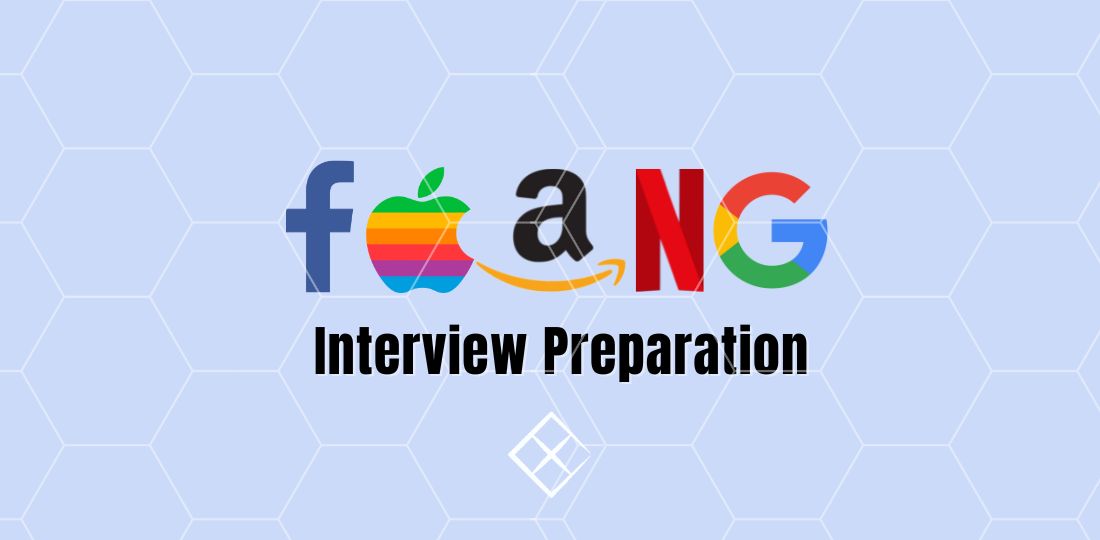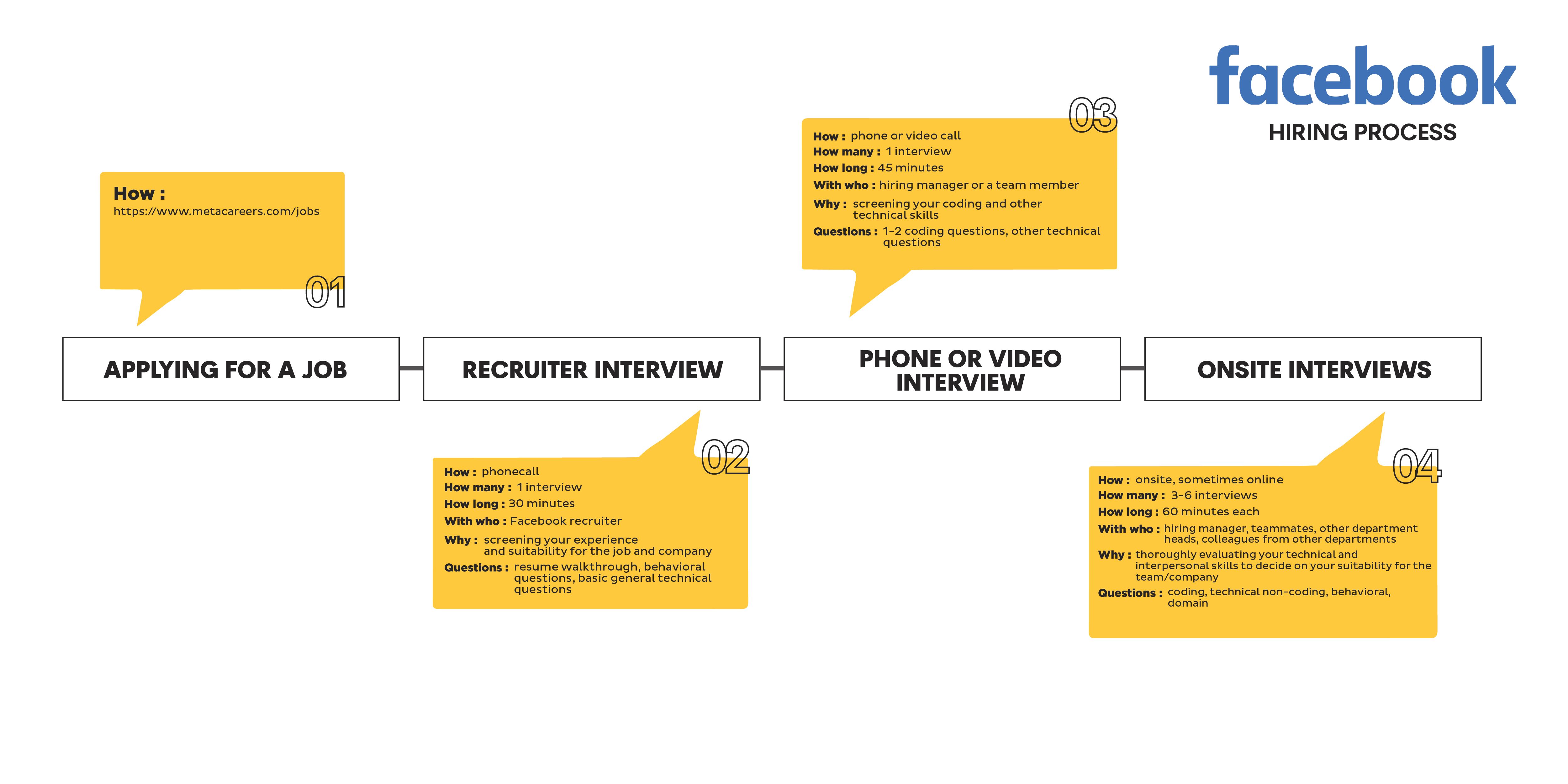All Categories
Featured
Table of Contents

There are whole lots of guides out there to FAANG interview processes. This is the most comprehensive and one of the most in-depth due to the fact that it's the just one made by recruiters for candidates we spent thousands of hours speaking to dozens of present and former FAANG recruiters about their processes. Throughout this overview, you'll see a bunch of direct quotes from these interviewers, where they describe the peculiarities of each business's procedure and bar in their own words.
As you can think of, they all requested to remain anonymous, yet we wish to thank them below, primarily - career prep tech. FAANG meetings are an onslaught, yet you can pass them also if you doubt on your own speaking with is less complicated once you discover a business's operating allegory. George Lakoff (neuroscience and expert system researcher) claims that every human company has an allegory they run as
Allegories apart, this guide will certainly additionally walk you through the unglamorous logistics of every FAANG's meeting procedure to ensure that you know the number of actions there are, what those steps entail, and what sort of questions they ask. Our goal is to have you walk in and be completely unfazed by the process since you're expecting them.
Software Engineering Prep
That stated, if you're targeting those roles, you'll still obtain worth out of this guide. In Part 1 of this overview, we'll highlight crucial resemblances and differences in between the FAANG firms, particularly: MetaAppleAmazonNetflixGoogleMicrosoft (they're not officially FAANG, yet we're including them anyway from now on, when we say "FAANG", we indicate Microsoft too)In Component 2, we'll go through each business individually and inform you how each of their procedures work and just how to plan for each one.
If tech has a food web, they're at the top. The majority of various other technology business copy or are affected by what FAANG does. There are likewise a number of misconceptions regarding FAANG meeting processes. 2 big ones are that Amazon has the cheapest bar, and Google has the greatest bar. That's not real; we have the data.
They're simply different procedures."My close friend talked to at Google and Facebook, and he passed both loopholes. At Google, he was supplied L6.
What should I know before enrolling in Job Interview Success Path?
And the level of distinction at 2 of the most trusted names in techwas two degrees of standing. And one usual concept in big technology is that Google's process is much easier than Facebook's.
For every onsite completed after the 5th, your chances of obtaining a deal level off at 80-85%. Pathrise discovered that the majority of their designers failed 4-5 onsites before they got an offer. Mind you, these datasets were quite various: Triplebyte manipulated in the direction of individuals with nontraditional histories, interviewing.io inclined in the direction of elderly backend engineers, and Pathrise was mostly junior designers.
We can not describe what yet. The data is yelling in all caps: there is a there there. Another unscientific point: these 5 meetings should ideally resemble the actual thing as much as possible. If you desire a FAANG job, however your 5 interviews are with startups that do not ask algorithmic inquiries, you won't get as much worth.
Either way, there's no injury in asking. Recruiter calls don't vary much from FAANG firm to FAANG company, so we made a decision to place everything concerning what to expect in an employer telephone call in one location.
What should I know before enrolling in Tech Industry Prep?
In this phone call, an employer will certainly ask you concerning your past experience, your income expectations, and why you have an interest in that specific business (algorithm design prep). They will likewise ask you about your timeline (how soon you anticipate to accept an offer), how much along you are with various other business, whether you have superior offers, and so on
Bear in mind that a lot of employers don't have a technical background and they're not software application developers, so it is very important to be able to describe your technological contributions in clear layperson's terms. It's also truly vital, at this stage, not to expose your salary assumptions, your salary history, or where you are in the procedure with various other firms.
Simply do not do it when you provide out details this early at the same time, you're painting future you into a corner. This area will provide you a feeling for exactly how these business' procedures vary. For now, don't bother with how that converts into interview prep we'll cover that later when we explain how to prepare for each business.
Mock Interviews For Engineers
In it, we rank the FAANGs on their "Chaos Score". The more factors a business has, the more chaotic they are. In this context, we specify "disorder" as the level of unpredictability and unpredictability that candidates can anticipate from the interview procedure and its end results. If a firm constantly adheres to the exact same procedure, asks the very same questions, and completely trains their job interviewers, they are not chaotic.
"Why" business are the most susceptible to predisposition. If mayhem is heck, after that "Why" companies are increasing heck for candidates and themselves.
A Google or Facebook meeting does not alter depending on the team you're interviewing for. Both companies have one large, central meeting procedure that's entirely divorced from which team you could wind up on. If you do well in the team-agnostic process, there will certainly be a team matching element after the onsite.
What is the difference between Data Practice and other interview prep options?
(Note: Google is reported to be altering to a team-dependent process, but we'll leave that where it is in the meantime.)At Microsoft, Netflix, Apple, and Amazon, the procedure is team-dependent. You'll not just be talking to with individuals that you'll be functioning with, but there's even more disorder. Each team defines exactly how they do things: the kinds of questions asked, the types of meeting rounds, and even how they make hiring choices.
Facebook is the least chaotic company in this group since they have the most extensive recruiter training in FAANG. Their procedure is extensive and discerning.
Who has the best customer service for Google Tech Prep?
Facebook is the only FAANG where this holds true. Facebook and Amazon put interviewer candidates with roughly the same things, but Facebook is much more strenuous. For instance, both will have comparable modules recruiters undergo in training. A component at Amazon is most likely to be a box to check: if you do it, you pass.

Facebook components are much more likely to have a rubric. Google used to have an extra in-depth job interviewer training process than what they have now. For whatever reason, they started to skimp on their recruiter training approximately at some time in the 2010s. Now, Googlers can obtain a little training, however normally not as much as people at Facebook or Amazon.
Latest Posts
The Ultimate Guide To Data Science Interview Preparation
Best Ai & Machine Learning Courses For Faang Interviews
What’s The Faang Hiring Process Like In 2025?